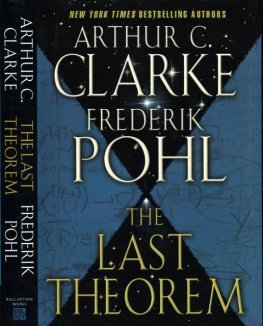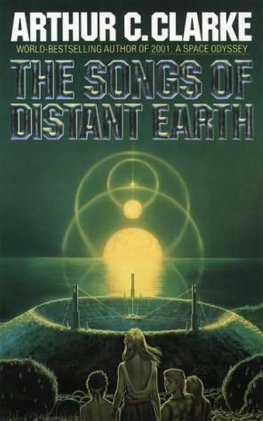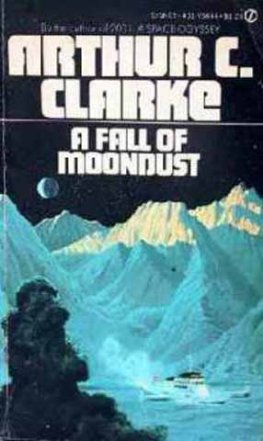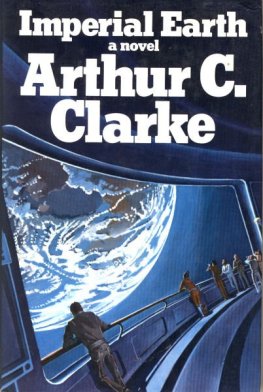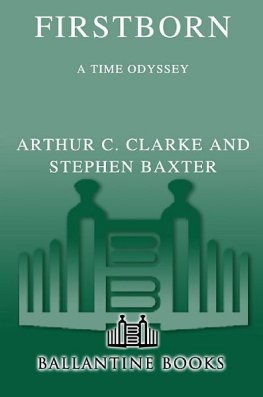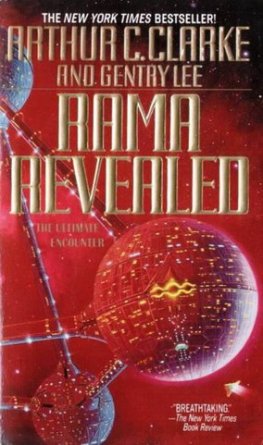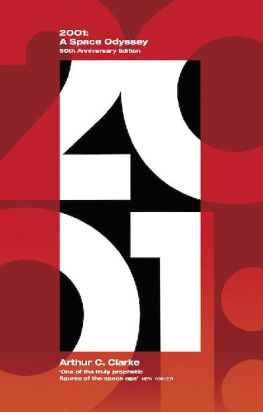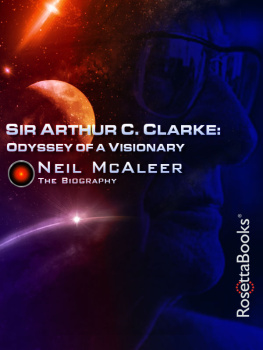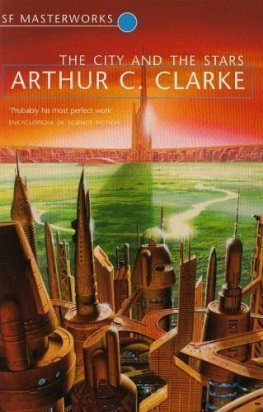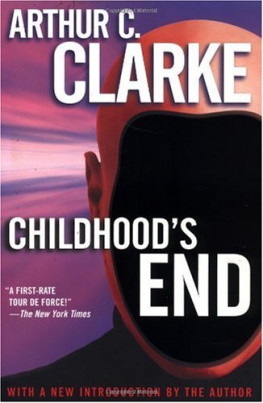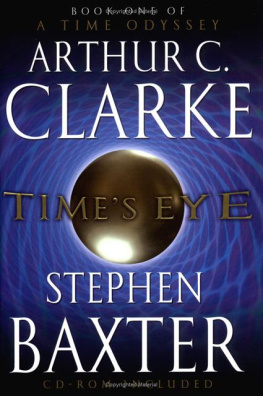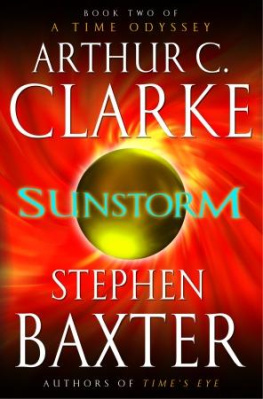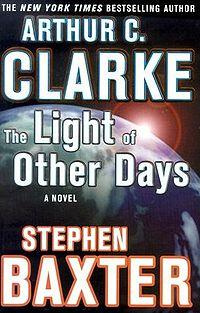Arthur Clarke - The Forgotten Enemy
Here you can read online Arthur Clarke - The Forgotten Enemy full text of the book (entire story) in english for free. Download pdf and epub, get meaning, cover and reviews about this ebook. year: 1948, genre: Science fiction. Description of the work, (preface) as well as reviews are available. Best literature library LitArk.com created for fans of good reading and offers a wide selection of genres:
Romance novel
Science fiction
Adventure
Detective
Science
History
Home and family
Prose
Art
Politics
Computer
Non-fiction
Religion
Business
Children
Humor
Choose a favorite category and find really read worthwhile books. Enjoy immersion in the world of imagination, feel the emotions of the characters or learn something new for yourself, make an fascinating discovery.

- Book:The Forgotten Enemy
- Author:
- Genre:
- Year:1948
- Rating:3 / 5
- Favourites:Add to favourites
- Your mark:
- 60
- 1
- 2
- 3
- 4
- 5
The Forgotten Enemy: summary, description and annotation
We offer to read an annotation, description, summary or preface (depends on what the author of the book "The Forgotten Enemy" wrote himself). If you haven't found the necessary information about the book — write in the comments, we will try to find it.
The Forgotten Enemy — read online for free the complete book (whole text) full work
Below is the text of the book, divided by pages. System saving the place of the last page read, allows you to conveniently read the book "The Forgotten Enemy" online for free, without having to search again every time where you left off. Put a bookmark, and you can go to the page where you finished reading at any time.
Font size:
Interval:
Bookmark:
The Forgotten Enemy
by Arthur C. Clarke
The thick furs thudded softly to the ground as Professor Millward jerked himself upright on the narrow bed. This time, he was sure, it had been no dream; the freezing air that rasped against his lungs still seemed to echo with the sound that had come crashing out of the night.
He gathered the furs around his shoulders and listened intently. All was quiet again: from the narrow windows on the western walls long shafts of moonlight played upon the endless rows of books, as they played upon the dead city beneath. The world was utterly still; even in the old days the city would have been silent on such a night, and it was doubly silent now.
With weary resolution Professor Millward shuffled out of bed, and doled a few lumps of coke into the glowing brazier. Then he made his way slowly towards the nearest window, pausing now and then to rest his hand lovingly on the volumes he had guarded all these years.
He shielded his eyes from the brilliant moonlight and peered out into the night. The sky was cloudless: the sound he had heard had not been thunder, whatever it might have been. It had come from the north, and even as he waited it came again.
Distance had softened it, distance and the bulk of the hills that lay beyond London. It did not race across the sky with the wantonness of thunder, but seemed to come from a single point far to the north. It was like no natural sound that he had ever heard, and for a moment he dared to hope again.
Only Man, he was sure, could have made such a sound. Perhaps the dream that had kept him here among these treasures of civilization for more than twenty years would soon be a dream no longer. Men were returning to England, blasting their way through the ice and snow with the weapons that science had given them before the coming of the Dust. It was strange that they should come by land, and from the north, but he thrust aside any thoughts that would quench the newly kindled flame of hope.
Three hundred feet below, the broken sea of snow-covered roofs lay bathed in the bitter moonlight. Miles away the tall stacks of Battersea Power Station glimmered like thin white ghosts against the night sky. Now that the dome of St Pauls had collapsed beneath the weight of snow, they alone challenged his supremacy.
Professor Millward walked slowly back along the bookshelves, thinking over the plan that had formed in his mind. Twenty years ago he had watched the last helicopters clilmb-ing heavily out of Regents Park, the rotors churning the ceaselessly falling snow. Even then, when the silence had closed around him, he could not bring himself to believe that the north had been abandoned forever. Yet already he had waited a whole generation, among the books to which he had dedicated his life.
In those early days he had sometimes heard, over the radio which was his only contact with the south, of the struggle to colonize the now-temperate lands of the Equator. He did not know the outcome of that far-off battle, fought with desperate skill in the dying jungles and across deserts that had already felt the first touch of snow. Perhaps it had failed; the radio had been silent now for fifteen years or more. Yet if men and machines were indeed returning from the northof all directionshe might again be able to hear their voices as they spoke to one another and to the lands from which they had come.
Professor Millward left the University building perhaps a dozen times a year, and then only through sheer necessity. Over the past two decades he had collected everything he needed from the shops in the Bloomsbury area, for in the final exodus vast supplies of stocks had been left behind through lack of transport. In many ways, indeed, his life could be called luxurious: no professor of English literature had ever ceen clothed in such garments as those he had taken from an Oxford Street furriers.
The sun was blazing from a cloudless sky as he shouldered his pack and unlocked the massive gates. Even ten years ago packs of starving dogs had hunted in this area, and though he had seen none for years he was still cautious and always carried a revolver when he went into the open.
The sunlight was so brilliant that the reflected glare hurt his eyes; but it was almost wholly lacking in heat. Although the belt of cosmic dust through which the Solar System was now passing had made little visible difference to the suns brightness, it had robbed it of all strength. No one knew whether the world would swim out into the warmth again in ten or a thousand years, and civilization had fled southward in search of lands where the word summer was not an empty mockery.
The latest drifts had packed hard and Professor Millward had little difficulty in making the journey to Tottenham Court Road. Sometimes it had taken him hours of floundering through the snow, and one year he had been sealed in his great concrete watch tower for nine months.
He kept away from the houses with their dangerous burdens of snow and their Damoclean icicles, and went north until he came to the shop he was seeking. The words above the shattered windows were still bright: Jenkins Sons. Radio and Electrical. Television A Speciality.
Some snow had drifted through a broken section of roofing, but the little upstairs room had not altered since his last visit a dozen years ago. The all-wave radio still stood on the table, and empty tins scattered on the floor spoke mutely of the lonely hours he had spent here before all hope had died. He wondered if he must go through the same ordeal again.
Professor Millward brushed the snow from the copy of The Amateur Radio Handbook for 1965, which had taught him what little he knew about wireless. The test-meters and batteries were still lying in their half-remembered places, and to his relief some of the batteries still held their charge. He searched through the stock until he had built up the necessary power supplies, and checked the radio as well as he could. Then he was ready.
It was a pity that he could never send the manufacturers the testimonial they deserved. The faint hiss from the speaker brought back memories of the B.B.C., of the nine oclock news and symphony concerts, of all the things he had taken for granted in a world that was gone like a dream. With scarcely controlled impatience he ran across the wave bands, but everywhere there was nothing save that omnipresent hiss. That was disappointing, but no more: he remembered that the real test would come at night. In the meantime he would forage among the surrounding shops for anything that might be useful.
It was dusk when he returned to the little room. A hundred miles above his head, tenuous and invisible, the Heaviside Layer would be expanding outward towards the stars as the sun went down. So it had done every evening for millions of years, and for half a century only, Man had used it for his own purposes, to reflect around the world his messages of hate or peace, to echo with trivialities or to sound with music once called immortal.
Slowly, with infinite patience, Professor Millward began to traverse the shortwave bands that a generation ago had been a babel of shouting voices and stabbing Morse. Even as he listened, the faint hope he had dared to cherish began to fade within him. The city itself was no more silent than the once-crowded oceans of ether. Only the faint crackle of thunderstorms half the world away broke the intolerable stillness. Man had abandoned his latest conquest.
Soon after midnight the batteries faded out. Professor Millward did not have the heart to search for more, but curled up in his furs and fell into a troubled sleep. He got what consolation he could from the thought that if he had not proved his theory, he had not disproved it either.
The heatless sunlight was flooding the lonely white road when he began the homeward journey. He was very tired, for he had slept little and his sleep had been broken by the recurring fantasy of rescue.
Font size:
Interval:
Bookmark:
Similar books «The Forgotten Enemy»
Look at similar books to The Forgotten Enemy. We have selected literature similar in name and meaning in the hope of providing readers with more options to find new, interesting, not yet read works.
Discussion, reviews of the book The Forgotten Enemy and just readers' own opinions. Leave your comments, write what you think about the work, its meaning or the main characters. Specify what exactly you liked and what you didn't like, and why you think so.

